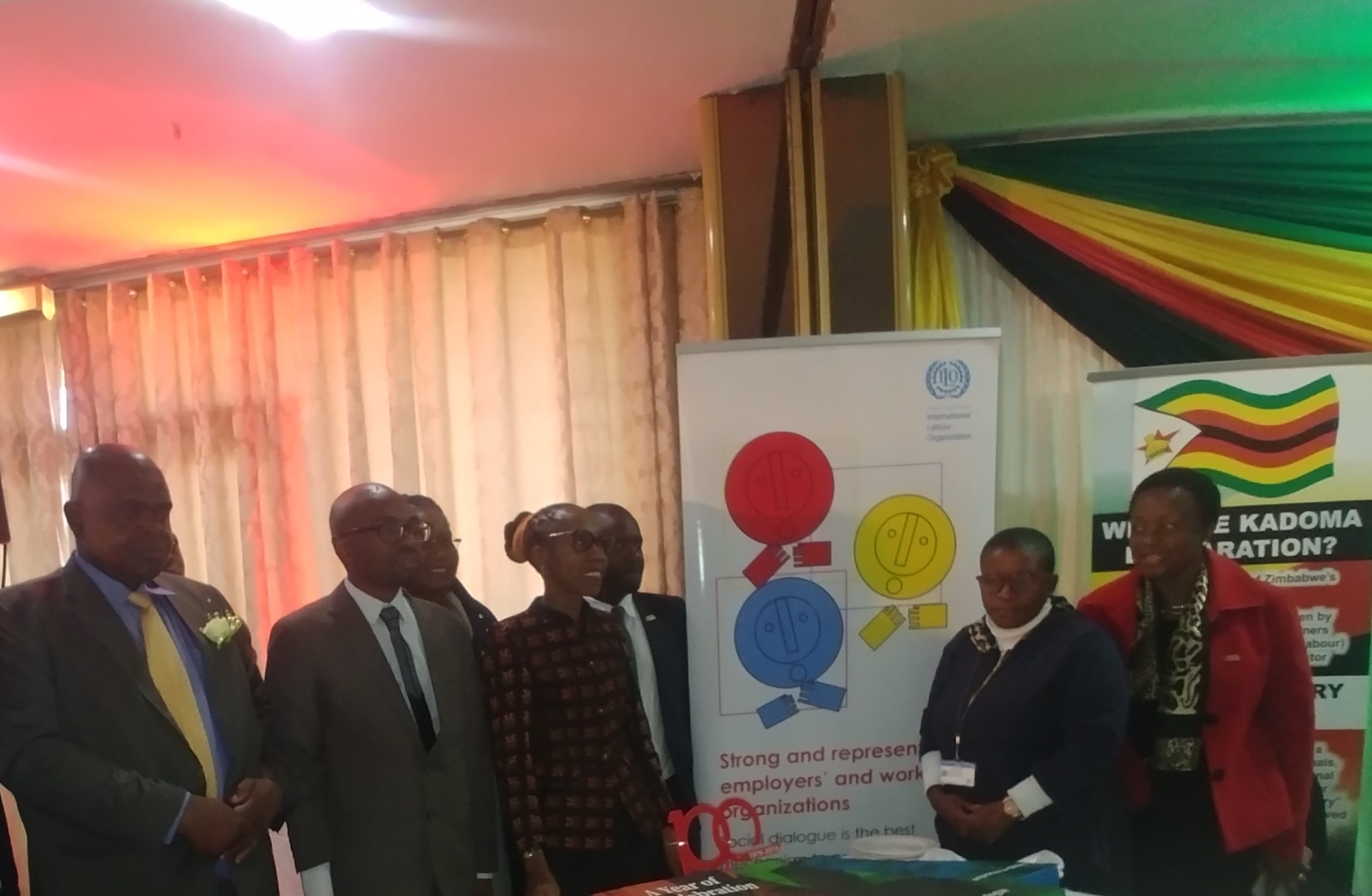By Byron Mutingwende
Social dialogue is an effective tool for people to find each other, forge a new national vision and commit to walk together towards a common purpose, Ms Hopolang Phororo, the Director of the International Labour Organisation (ILO) Country Office for Zimbabwe and Namibia has said.
Ms Phororo made the remarks during the Commissioning of the Tripartite Negotiating Forum (TNF) Chamber by President Emmerson Mnangagwa at the Rainbow Towers Hotel in Harare.
“Today presents significant promise for the people of Zimbabwe and their efforts to grow the economy and ensure shared prosperity. It is not the responsibility of either government, employers or workers to find solutions to the economic and social challenges. This is the responsibility of all citizens. Social dialogue is an effective tool for people to find each other, forge a new national vision and commit to walk together towards a common purpose. As the ILO, we are convinced that the commissioning of the TNF as a legislated chamber will go a long way to implement the TNF Bill, which President Emmerson Mnangagwa recently signed into law,” Ms Phororo said.
She added that through social dialogue, no crisis can be wasted and that successful social dialogue structures and processes have the potential to resolve important economic and social issues.
The ILO Director emphasised that trust building, political will, negotiating in good faith, patience and dwelling on mutual gains are key ingredients for successful dialogue.
In his remarks at the same event, Mr. Peter Mutasa, the President of the Zimbabwe Congress of Trade Unions (ZCTU) said the commissioning of the TNF chamber came at an opportune time given the crises afflicting the economy. He said the importance of social dialogue in crises is self-evident.
“Notable examples such as the case of South Africa during the transition from apartheid and more recently Tunisia during the democratic transition after the Arab Spring of 2011 when they established the National Council for Social Dialogue as an institutional framework for national consultations, and went on to agree on interventions for socio-economic recovery,” Mr. Mutasa said.
He noted that the ILO has in effect been promoting the social dialogue approach to crises responses, particularly in fragmented societies to achieve reconciliation, confidence and nation-building, inclusive recovery and sustainable development.
The labour union leader said social dialogue presents a ‘space of governance’ which can accommodate a broad range of actors and ensure broader ownership of development policies and programmes, thereby enhancing political legitimacy.
Mr Mutasa noted the serious economic crisis, with the re-emergence of the parallel market for foreign currency amidst constrained supply feeding into rising prices and inflation, which stood at 75% in April 2019. In September 2018, inflation stood at 5, 4% jumping to 21% in October following the Monetary and Fiscal Measures adopted on 1 October 2018, which included separation of Nostro FCA and RTGS FCA and the 2% transactional tax.
Dr. Israel Murefu, the Acting president of the Employers Confederation of Zimbabwe (EMCOZ) said the TNF brings together government, organised business and labour to negotiate key socio-economic matters that affect all stakeholders and the nation at large.
“What was missing was the legislation to make resolutions of TNF effective and this is the gap that the legislation will hopefully fill. The framework for social dialogue through TNF is provided for in its founding principles or values among the provisions. Shared values are key to establishing commonality of purpose and bringing relatedness among the social partners as they shape the direction of social dialogue,” Dr. Murefu said.
In the same vein, Guest of Honour at the event, President underscored the fact that consensus building and win-win arrangements should underpin TNF.
The TNF is established in accordance with ILO Convention No. 144 on Tripartite Consultation of 1976, which was ratified by the Government of Zimbabwe in 1989.






